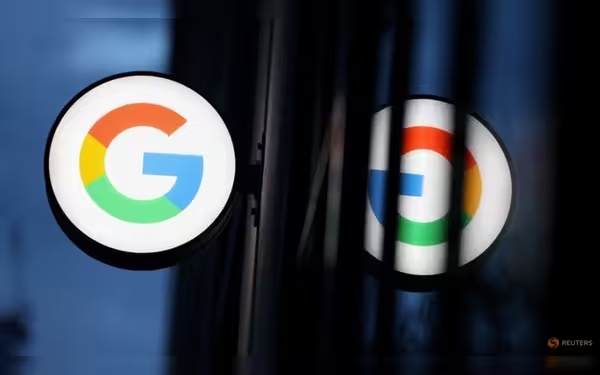Thursday, July 4, 2024 05:46 PM
Google and Meta Platforms combat misinformation in election ads
- New Google policy requires disclosure of digitally altered content in election ads
- Tech giants like Google and Meta Platforms prioritize transparency in digital advertising
- Initiatives aim to safeguard electoral integrity by combating misinformation through altered content
 Image Credits: channelnewsasia
Image Credits: channelnewsasiaGoogle's new policy mandates disclosure of altered content in election ads to combat misinformation. Tech giants prioritize transparency in digital advertising to safeguard electoral integrity.
Google has recently introduced a new policy aimed at enhancing transparency and combating misinformation in election advertisements. This policy mandates advertisers to disclose any digitally altered content that depicts real or realistic-looking individuals or events. The primary objective behind this initiative is to safeguard the integrity of electoral processes by ensuring that viewers are not misled by deceptive content.
The emergence of advanced generative AI technology, capable of rapidly creating text, images, and videos based on prompts, has raised concerns regarding potential misuse. Particularly, the proliferation of deepfakes, which are convincingly manipulated content designed to deceive audiences, has further complicated the distinction between reality and fabrication.
To adhere to the updated disclosure requirements, advertisers must now indicate the presence of altered or synthetic content by checking a designated box in the 'altered or synthetic content' section of their campaign settings. Google will automatically generate an in-ad disclosure for certain ad formats, while for others, advertisers are required to provide a prominent disclosure to users, with the specific language varying based on the context of the advertisement.
Instances of misinformation through digitally altered content have been observed in various election campaigns globally. For example, during the recent general election in India, fake videos featuring Bollywood actors criticizing Prime Minister Narendra Modi circulated widely online, urging viewers to support the opposition Congress party. Additionally, OpenAI, under the leadership of Sam Altman, disclosed thwarting five covert influence operations that sought to exploit AI models for deceptive activities aimed at manipulating public opinion and influencing political outcomes.
Meta Platforms, the parent company of Facebook and Instagram, had previously announced similar disclosure requirements for advertisers utilizing AI or other digital tools to modify or create political, social, or election-related ads. This collective effort by tech giants underscores the importance of transparency and accountability in digital advertising practices to uphold the integrity of democratic processes.
The proactive measures taken by Google and other tech companies to address the spread of misinformation through altered content in election ads mark a significant step towards fostering a more informed and trustworthy digital environment. By promoting transparency and responsible advertising practices, these initiatives contribute to safeguarding the authenticity and credibility of online information, ultimately empowering users to make well-informed decisions during critical electoral periods.













